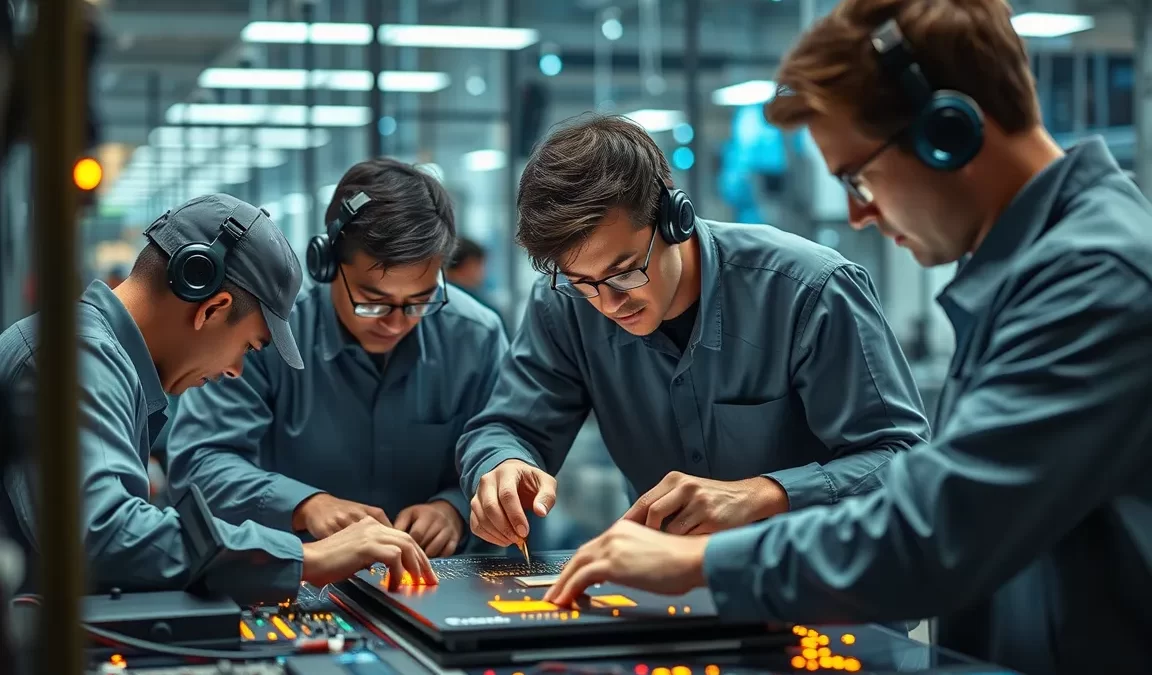The Trump administration is in active talks to authorize the United Arab Emirates to import over a million Nvidia Corp’s most advanced artificial intelligence chips, in what would mark a sharp departure from existing Biden-era export controls, Bloomberg said in a report on Tuesday.
The prospective deal, which remains under negotiation, has drawn scrutiny in Washington over fears that American-made hardware could eventually end up in Chinese hands.
Citing people familiar with the discussions, Bloomberg said the proposed agreement would allow the UAE to import as many as 500,000 high-end AI chips annually from now through 2027.
These chips, identified as Nvidia’s H100s, represent the cutting edge in AI hardware.
Approximately one-fifth of the chips would be allocated to G42, Abu Dhabi’s leading AI company, with the remainder intended for use by US companies establishing data centers in the region.
Among those companies is OpenAI, which could soon announce a new Gulf-based data center initiative, said individuals close to the matter.
The arrangement, if finalised, would mark a fundamental shift in how Washington approaches AI hardware distribution to Middle Eastern partners.
A sharp divergence from existing chip export controls
The volume of chips potentially bound for the UAE under the deal significantly exceeds the thresholds allowed under export regulations imposed during President Joe Biden’s tenure.
Under that framework, a firm like G42 would have been permitted to acquire roughly a quarter of the capacity now being discussed.
The Biden administration’s chip export controls, particularly those targeting what is known as “AI diffusion,” were designed to limit the spread of sensitive AI capabilities, especially to countries with close ties to China.
G42, for instance, had been required to divest from Chinese tech giant Huawei to secure a $1.5 billion investment from Microsoft in 2023.
The Trump administration appears poised to dismantle those limits, framing the move as part of a broader strategy to counter China by strengthening technological alliances with Gulf states.
President Trump, who is currently touring the Middle East, is expected to visit the UAE after stops in Saudi Arabia and Qatar.
Officials say an announcement about the Nvidia deal could come during that leg of the trip.
UAE’s tech ambitions grow as concerns over China persist
Behind the scenes, White House AI adviser David Sacks has played a central role in shaping the policy discussions.
Sacks recently met with Sheikh Tahnoon bin Zayed Al Nahyan, the UAE’s national security adviser, who has been lobbying for increased access to US semiconductor technology.
The UAE has pledged to invest as much as $1.4 trillion in US technology, energy, and infrastructure, a move widely seen as an attempt to sweeten its bid for expanded access to Nvidia’s chips.
In a social media post after meeting Sheikh Tahnoon, Sacks warned that China is narrowing the technological gap.
“The country that builds its partner ecosystem the fastest is the one that will win this high-stakes competition,” he wrote, arguing that AI diplomacy is now crucial to preserving US leadership.
It was an honor to be welcomed as a guest to the UAE by HH Sheik Tahnoon @hhtbzayed. We discussed our two nations’ AI plans and opportunities in a spirit of mutual cooperation and respect. As @VP Vance explained in his Paris speech on AI, the U.S. must make itself the
1.7K
Reply
Copy link
Still, the proposed deal has sparked backlash from lawmakers concerned about national security.
“Deals like this require scrutiny and verifiable guardrails,” said Representative John Moolenaar, a leading Republican on the House committee focused on US-China competition.
“We raised concerns about G42 last year for this very reason — and we need safeguards in place before more agreements move forward.”
Strategic stakes rise in race for AI leadership
If approved, the UAE agreement would not only cement the country’s status as a rising AI power but could also set a precedent for similar partnerships in the region.
The Trump administration is reportedly exploring a comparable agreement with Saudi Arabia, suggesting a broader realignment of US technology export policy to the Gulf.
Whether these efforts succeed will depend heavily on Washington’s ability to implement safeguards that prevent inadvertent transfers of sensitive technology to rivals such as China.
For now, the Trump team is betting that closer cooperation with trusted partners in the Middle East will deliver both strategic and economic dividends.
The White House, Nvidia, G42, OpenAI, and the UAE Embassy declined to comment on the specifics of the proposed deal.
Nvidia expands AI footprint in Saudi Arabia
In a separate development underscoring the region’s growing AI ambitions, Nvidia on Tuesday announced it would sell over 18,000 of its newly unveiled Blackwell chips to Humain, a Saudi AI company.
The deal coincided with the Saudi-US Investment Forum in Riyadh, where Nvidia CEO Jensen Huang said the chips would be deployed in a 500 megawatt data center.
The Blackwell GB300 chip, announced earlier this year, is considered among the most powerful AI accelerators currently available.
The sale highlights how the Middle East, backed by sovereign wealth and deepening ties to US firms, is rapidly becoming a hub for next-generation computing.
The post US considers deal to let UAE import over a million advanced Nvidia chips: report appeared first on Invezz

